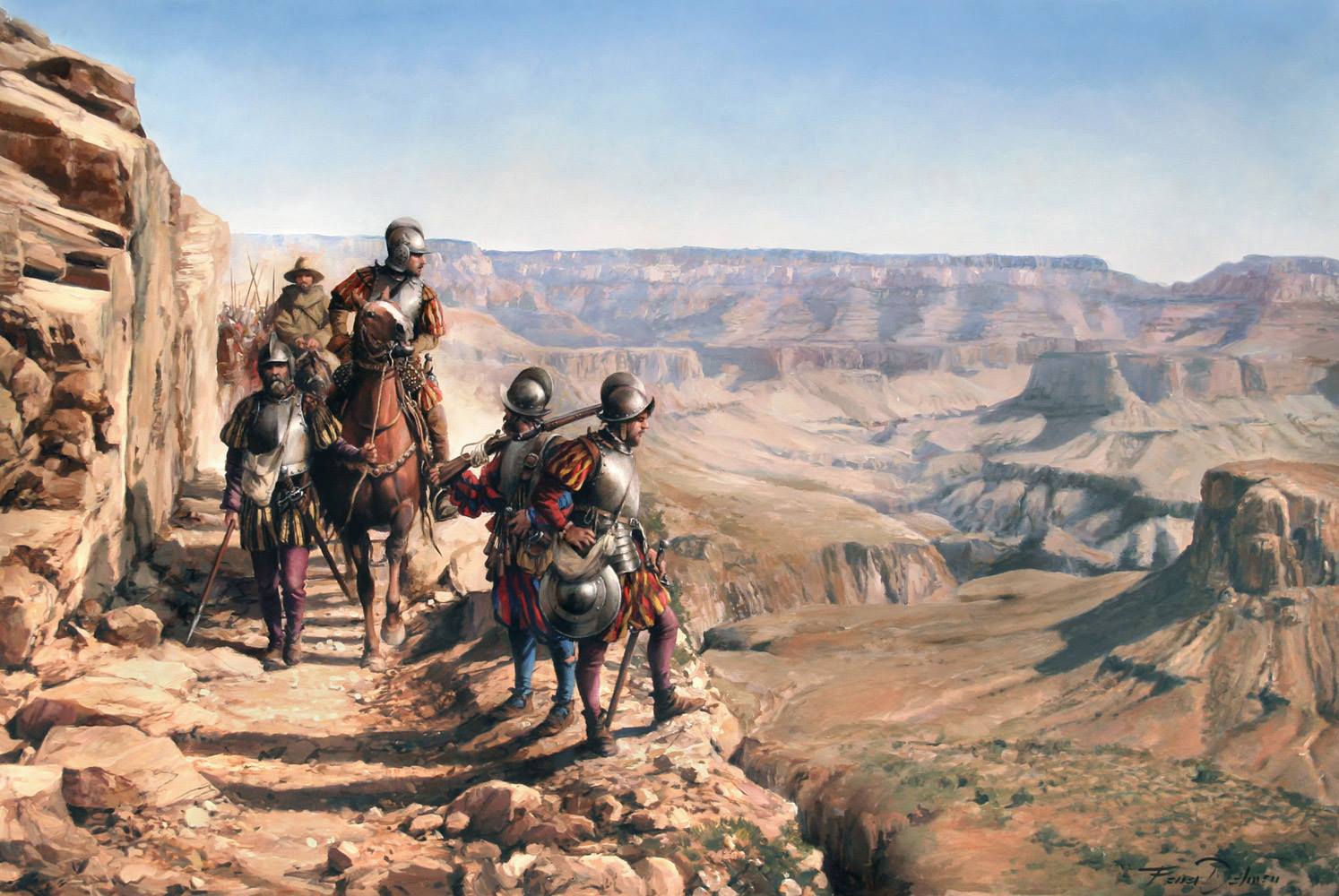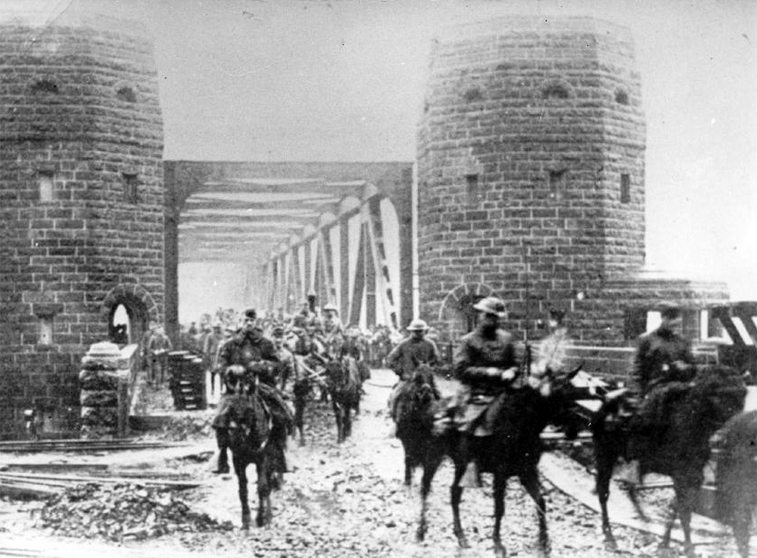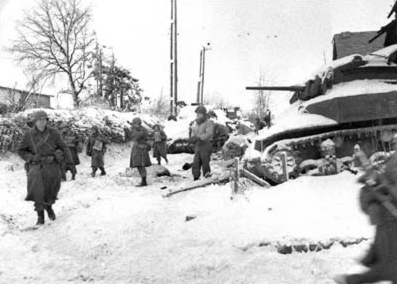|
Tim Babcock
Timothy Milford Babcock (October 27, 1919 – April 7, 2015) was an American politician, the 16th Governor of the state of Montana, from 1962 to 1969. Early life Babcock was born in Littlefork, Minnesota, the son of Olive (Rinehart) and Erwin Babcock. He later moved to Glendive, Montana and graduated from Dawson County High School in 1939. He married Betty Lee on September 21, 1941, and they had two children. After graduating from Dawson County High School in 1939, he worked at a Douglas Aircraft factory in California. In 1944, he enlisted in the US Army as an infantryman, and served with the 394th Infantry Regiment, 99th Infantry Division in the European Theater during World War II. He fought at Elsenborn Ridge, part of the Battle of the Bulge. He later took part in the capture of the Remagen Bridge, where he was awarded a Bronze Star Medal for valor. Career Babcock served three terms in the Montana Legislature prior to being elected lieutenant governor in 1960 ... [...More Info...] [...Related Items...] OR: [Wikipedia] [Google] [Baidu] |
Governor Of Montana
The governor of Montana is the head of government of MontanaMontana Constitution, Article VI, Section 4. and the commander-in-chief of the U.S. state, state's Montana National Guard, military forces. The governor has a duty to enforce state laws, the power to either approve or veto bills passed by the Montana Legislature, Montana State Legislature, to convene the legislature at any time, and to grant pardons and pardon, reprieves. The current Constitution of Montana, Montana Constitution, ratified in 1972, calls for a 4-year term for the governor, commencing on the first Monday in January following an election.Montana Constitution, Article VI, Section 1. The governor is term-limited to 8 years in any 16-year period. The constitution provides for the election of a List of lieutenant governors of Montana, lieutenant governor for the same term as the governor. The two offices are elected on the same ticket (election), ticket; a provision which did not appear in the state's first ... [...More Info...] [...Related Items...] OR: [Wikipedia] [Google] [Baidu] |
99th Infantry Division
The 99th Infantry Division was formed in 1942 and deployed overseas in 1944. The "Checkerboard" or "Battle Babies" division landed at the French port of Le Havre and proceeded northeast to Belgium. During the heavy fighting in the Battle of the Bulge, the unit suffered many casualties, yet tenaciously held its defensive position. In March 1945, the 99th advanced into the Rhineland, crossing the Rhine River at Remagen on March 11. After fighting in the Ruhr area, the unit moved southward into Bavaria, where it was located at the end of the war. The 99th Infantry Division, the "Checkerboard" division, gained its nickname from the division's insignia. The insignia was devised upon the 99th's formation in 1942, when the division was headquartered in the city of Pittsburgh. The blue and white checkerboard in the division's insignia is taken from the coat of arms of William Pitt, for whom Pittsburgh is named. The division was also known as the "Battle Babies" during 1945, a sobriquet c ... [...More Info...] [...Related Items...] OR: [Wikipedia] [Google] [Baidu] |
Montana Gubernatorial Election, 1964
The 1964 Montana gubernatorial election took place on November 3, 1964. Incumbent Governor of Montana Tim M. Babcock, who became Governor upon the death of previous Governor Donald Grant Nutter, ran for re-election. He won the Republican primary unopposed, and advanced to the general election, where he faced Roland Renne, the former President of Montana State College and the Democratic nominee, in the general election. Despite the fact that then-President Lyndon B. Johnson won the state handily in that year's presidential election, Babcock managed to narrowly defeat Renne to win his second and final term as governor. Democratic primary Candidates * Roland Renne, former President of Montana State College *Mike Kuchera, furniture dealer Results Republican primary Candidates *Tim M. Babcock, incumbent Governor of Montana Results General election Results References {{United States elections, 1964 Montana Gubernatorial 1964 Events Janua ... [...More Info...] [...Related Items...] OR: [Wikipedia] [Google] [Baidu] |
Texas
Texas (, ; Spanish language, Spanish: ''Texas'', ''Tejas'') is a state in the South Central United States, South Central region of the United States. At 268,596 square miles (695,662 km2), and with more than 29.1 million residents in 2020, it is the second-largest U.S. state by both List of U.S. states and territories by area, area (after Alaska) and List of U.S. states and territories by population, population (after California). Texas shares borders with the states of Louisiana to the east, Arkansas to the northeast, Oklahoma to the north, New Mexico to the west, and the Mexico, Mexican States of Mexico, states of Chihuahua (state), Chihuahua, Coahuila, Nuevo León, and Tamaulipas to the south and southwest; and has a coastline with the Gulf of Mexico to the southeast. Houston is the List of cities in Texas by population, most populous city in Texas and the List of United States cities by population, fourth-largest in the U.S., while San Antonio is the second most pop ... [...More Info...] [...Related Items...] OR: [Wikipedia] [Google] [Baidu] |
Lyndon B
Lyndon may refer to: Places * Lyndon, Alberta, Canada * Lyndon, Rutland, East Midlands, England * Lyndon, Solihull, West Midlands, England United States * Lyndon, Illinois * Lyndon, Kansas * Lyndon, Kentucky * Lyndon, New York * Lyndon, Ohio * Lyndon, Pennsylvania * Lyndon, Vermont * Lyndon, Sheboygan County, Wisconsin, a town * Lyndon, Juneau County, Wisconsin, a town Other uses * Lyndon State College, a public college located in Lyndonville, Vermont People * Lyndon (name), given name and surname See also * Lyndon School (other) * Lyndon Township (other) * * Lydon (other) * Lynden (other) * Lindon (other) * Linden (other) {{disambig, geo ... [...More Info...] [...Related Items...] OR: [Wikipedia] [Google] [Baidu] |
Arizona
Arizona ( ; nv, Hoozdo Hahoodzo ; ood, Alĭ ṣonak ) is a state in the Southwestern United States. It is the 6th largest and the 14th most populous of the 50 states. Its capital and largest city is Phoenix. Arizona is part of the Four Corners region with Utah to the north, Colorado to the northeast, and New Mexico to the east; its other neighboring states are Nevada to the northwest, California to the west and the Mexican states of Sonora and Baja California to the south and southwest. Arizona is the 48th state and last of the contiguous states to be admitted to the Union, achieving statehood on February 14, 1912. Historically part of the territory of in New Spain, it became part of independent Mexico in 1821. After being defeated in the Mexican–American War, Mexico ceded much of this territory to the United States in 1848. The southernmost portion of the state was acquired in 1853 through the Gadsden Purchase. Southern Arizona is known for its desert cl ... [...More Info...] [...Related Items...] OR: [Wikipedia] [Google] [Baidu] |
Barry Goldwater
Barry Morris Goldwater (January 2, 1909 – May 29, 1998) was an American politician and United States Air Force officer who was a five-term U.S. Senator from Arizona (1953–1965, 1969–1987) and the Republican Party nominee for president of the United States in 1964. Goldwater is the politician most often credited with having sparked the resurgence of the American conservative political movement in the 1960s. Despite his loss of the 1964 U.S. presidential election in a landslide, many political pundits and historians believe he laid the foundation for the conservative revolution to follow, as the grassroots organization and conservative takeover of the Republican party began a long-term realignment in American politics, which helped to bring about the "Reagan Revolution" of the 1980s. He also had a substantial impact on the American libertarian movement. Goldwater was born in Phoenix in what was then the Arizona Territory, where he helped manage his family's department ... [...More Info...] [...Related Items...] OR: [Wikipedia] [Google] [Baidu] |
Montana Legislature
The Montana State Legislature is the state legislature of the U.S. state of Montana. It is composed of the 100-member Montana House of Representatives and the 50-member Montana Senate. The Montana Constitution dictates that the legislature meet in regular session for no longer than 90 days in each odd-numbered year. The primary work of the legislature is to pass a balanced biennial budget which must then be approved by the governor. If the governor vetoes a bill, the legislature may override the veto by a two-thirds vote. Since the beginning of statehood for Montana, the Legislature has been split along party lines fairly consistently and evenly. Since adoption of the current state constitution in 1972, which mandated single-member legislative districts for the first time in the state's history, the Montana Senate has been controlled by Democrats in 9 sessions and Republicans in 16 sessions. During the same period, the Montana House has been controlled by Democrats in 8 ses ... [...More Info...] [...Related Items...] OR: [Wikipedia] [Google] [Baidu] |
Bronze Star
The Bronze Star Medal (BSM) is a United States Armed Forces decoration awarded to members of the United States Armed Forces for either heroic achievement, heroic service, meritorious achievement, or meritorious service in a combat zone. When the medal is awarded by the Army, Air Force, or Space Force for acts of valor in combat, the "V" device is authorized for wear on the medal. When the medal is awarded by the Navy, Marine Corps, or Coast Guard for acts of valor or meritorious service in combat, the Combat "V" is authorized for wear on the medal. Officers from the other Uniformed Services of the United States are eligible to receive this award, as are foreign soldiers who have served with or alongside a service branch of the United States Armed Forces. Civilians serving with U.S. military forces in combat are also eligible for the award. For example, UPI reporter Joe Galloway was awarded the Bronze Star with "V" device during the Vietnam War for rescuing a badly wounde ... [...More Info...] [...Related Items...] OR: [Wikipedia] [Google] [Baidu] |
Battle Of Remagen
The Battle of Remagen was an 18-day battle during the Allied invasion of Germany in World War II from 7 to 25 March 1945 when American forces unexpectedly captured the Ludendorff Bridge over the Rhine intact. They were able to hold it against German opposition and build additional temporary crossings. The presence of a bridgehead across the Rhine advanced by three weeks the Western Allies' planned crossing of the Rhine into the German interior. After capturing the Siegfried Line, the 9th Armored Division of the U.S. First Army had advanced unexpectedly quickly towards the Rhine. They were very surprised to see one of the last bridges across the Rhine still standing. The Germans had wired the bridge with about of demolition charges. When they tried to blow it up, only a portion of the explosives detonated. U.S. forces captured the bridge and rapidly expanded their first bridgehead across the Rhine, two weeks before Field Marshal Bernard Montgomery's meticulously planned Oper ... [...More Info...] [...Related Items...] OR: [Wikipedia] [Google] [Baidu] |
The Battle Of The Bulge
The Battle of the Bulge, also known as the Ardennes Offensive, was the last major German offensive campaign on the Western Front during World War II. The battle lasted from 16 December 1944 to 28 January 1945, towards the end of the war in Europe. It was launched through the densely forested Ardennes region between Belgium and Luxembourg. The primary military objectives were to deny further use of the Belgian port of Antwerp to the Allies and to split the Allied lines, which potentially could have allowed the Germans to encircle and destroy the four Allied forces. Nazi dictator Adolf Hitler, who since December 1941 had assumed direct command of the German army, believed that achieving these objectives would compel the Western Allies to accept a peace treaty in the Axis powers' favor. By this time, it was palpable to virtually the entire German leadership including Hitler himself that they had no realistic hope of repelling the imminent Soviet invasion of Germany unless th ... [...More Info...] [...Related Items...] OR: [Wikipedia] [Google] [Baidu] |





.jpg)

